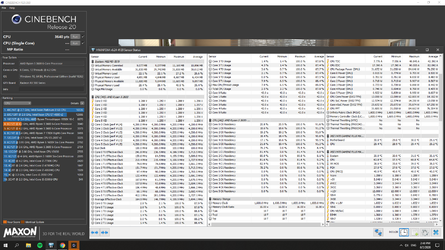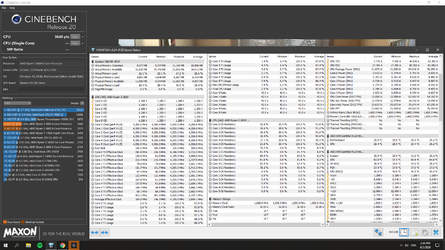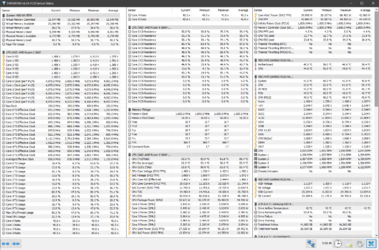Hey. I've spent hours and hours on reading here and there about Zen2 overclocking and I'm still confused. At the moment my CPU is running at ALL Core overclock, sitting @4.2GHz and 1.2875Vcore, during cinebench benchmark it drops to 1.25V same with Prime95 Small FFTs - it's not crossing 80C (realistically, in games 65-67C is max what im seeing, rarely 70).
My questions are...
Is it safe for 24/7 usage?
If yes, should I try to push more, and if yes what's max Vcore I should go for?
I didn't touch soc voltage it's on stock, should I change it?
Are there any windows settings I should change, does it worth to use AMD Balanced Power Plan for gaming?
Are there any BIOS settings that I should change that interfere with manual OC?
I assume that all what I read about not going over 1.3V is for under stress so my 1.25V is safe, I'm deducting that because on stock settings it's been going over 1.4 in idle. Please correct me if im wrong
 Another thing, how is that result looking like, any good or Im actually crippling performance by overclocking it that way? I've read that Zen2 shouldn't be overclocked at all since auto OC does its job just fine.
Another thing, how is that result looking like, any good or Im actually crippling performance by overclocking it that way? I've read that Zen2 shouldn't be overclocked at all since auto OC does its job just fine.
Thank You in advance!
Specs:
CPU: Ryzen 5 3600
RAM: G.Skill Ripjaws V 3200MHz CL16 2x8GB
MOBO: MSI X470 Gaming Plus MAX
PSU: BitFenix Whisper M 650W
My questions are...
Is it safe for 24/7 usage?
If yes, should I try to push more, and if yes what's max Vcore I should go for?
I didn't touch soc voltage it's on stock, should I change it?
Are there any windows settings I should change, does it worth to use AMD Balanced Power Plan for gaming?
Are there any BIOS settings that I should change that interfere with manual OC?
I assume that all what I read about not going over 1.3V is for under stress so my 1.25V is safe, I'm deducting that because on stock settings it's been going over 1.4 in idle. Please correct me if im wrong
 Another thing, how is that result looking like, any good or Im actually crippling performance by overclocking it that way? I've read that Zen2 shouldn't be overclocked at all since auto OC does its job just fine.
Another thing, how is that result looking like, any good or Im actually crippling performance by overclocking it that way? I've read that Zen2 shouldn't be overclocked at all since auto OC does its job just fine.Thank You in advance!
Specs:
CPU: Ryzen 5 3600
RAM: G.Skill Ripjaws V 3200MHz CL16 2x8GB
MOBO: MSI X470 Gaming Plus MAX
PSU: BitFenix Whisper M 650W
Last edited:

